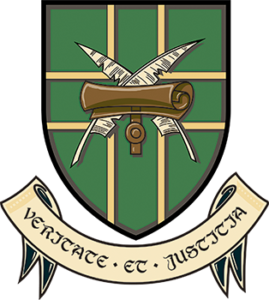The Office of Notary Public is one of great antiquity and historical significance. It is unclear, however, when or where the first public notary was formally appointed. One of the earliest references to a notary dates back to the time of Cicero (106 ‘ 43BC), the famed Roman orator and statesmen, who, it is claimed, employed persons skilled in the art of writing to record or ‘note’ his speeches. After the abdication in 476 AD of Romulus Augustus, the last emperor of Rome, the papacy became the de facto ruler of Rome. When Pope Leo III crowned Charlemagne emperor of the Holy Roman Empire in 800AD the empire encompassed the entire heartland of Western Europe, stretching from the Danube to the Pyrenees and from Rome to the North Sea. Ecclesiastical notaries were by then part of the papal household and were known to deal with both ecclesiastical and civil matters. At this time it had become the practice of kings, princes and rulers in communion with the Holy See to seek various dispensations, privileges and faculties which were at the gift of the papacy. One such faculty concerned the appointment of notaries. The Pope, for administrative convenience, frequently delegated the power to appoint public notaries to religious (usually Archbishops) and temporal leaders throughout the Holy Roman Empire. In England, the power to create notaries was vested in and exercised by the Archbishop of Canterbury under papal and imperial authority. In Ireland, public notaries were at various times appointed by the Archbishop of Canterbury and the Archbishop of Armagh. The position remained so until the Reformation. There is archival evidence showing that public notaries, acting pursuant to papal and imperial authority, practised in England and in Ireland in the 13th century and it is reasonable to assume that notaries functioned here before that time. After the Reformation, persons appointed to the office of public notary either in Great Britain or Ireland received the faculty by royal authority and appointments under faculty from the Pope and the emperor ceased. In 1871, under the Matrimonial Causes and Marriage Law (Ireland) Amendment 1870, the jurisdiction previously exercised by the Archbishop of Armagh in the appointment of notaries was vested in and became exercisable by the Lord Chancellor of Ireland. In 1920, the power to appoint notaries public was transferred to the Lord Lieutenant of Ireland. The position in Ireland changed once again in 1924 following the establishment of the Irish Free State. Under the Courts of Justice Act, 1924 the jurisdiction over notaries public was transferred to the Chief Justice of the Irish Free State. In 1961, under the Courts (Supplemental Provisions) Act of that year, and the power to appoint notaries public became exercisable by the Chief Justice . This remains the position in the Republic of Ireland. In Northern Ireland, notaries public are appointed by the Lord Chief Justice.

